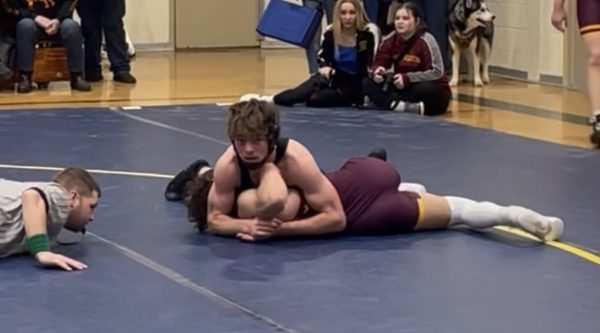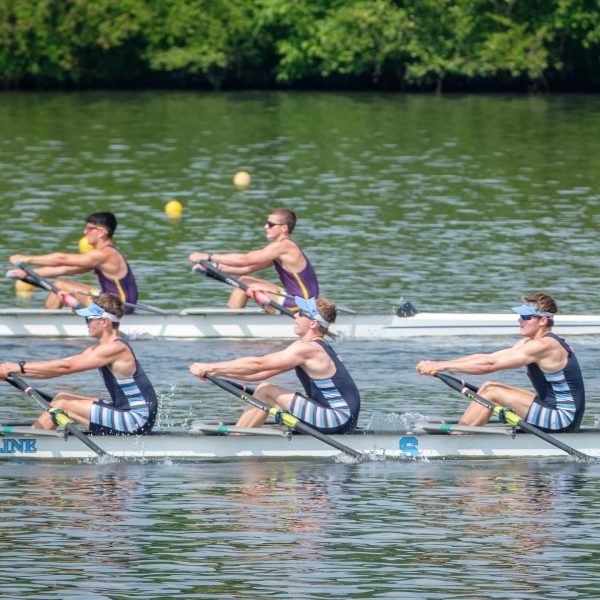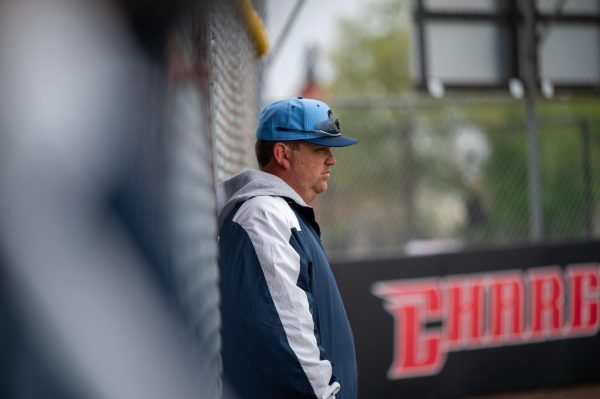Skyline’s Sports Medicine Program: Who Runs It, How Do You Get Involved, and What Exactly Is Sports Medicine?
Skyline Athletic Trainers Matthew Ras (Left) and Eric Kilpatrick (Right) pose for a photo.
When thinking about sports, most people’s first thought is probably about the points scored in a match or the number of games won in a season. But there is a large part that is often overlooked: sports medicine and athletic training. Athletic training is extremely important because it is essential to injury recovery and prevention. Injuries don’t disappear, they have to be treated carefully even after the pain goes away. Athletic trainers are the experts in treating these injuries. They know how to diagnose an injury and give helpful ways to strengthen, heal, and prevent further injuries.
Skyline has two excellent Athletic Trainers: Eric Kilpatrick and Matthew Ras.
Kilpatrick always knew he wanted to work in medicine. He was originally interested in Physical Therapy, but after shadowing a couple of physical therapists, he found “that environment was not what I was looking for,” said Kilpatrick. After being introduced to Adrian College’s Athletic Training program on a cross-country recruiting visit, he decided to pursue this interest and earn a Bachelor of Science in Exercise Science and a Master of Science in Athletic Training.
Ras, however, took a different path. He was attending Western Michigan University pursuing an Exercise Science degree. “I just decided I didn’t like how much marketing you had to do to find work,” said Ras.
After getting in contact with his program director, he took the Introduction to Athletic Training course. “And just never stopped,” noted Ras.
Skyline now has opportunities for students interested in learning more about the anatomy and physiology involved in sports. Ms. Garcia is teaching an Intro to Sports Medicine class during 2nd trimester, and Skyline’s athletic trainers are more than willing to take students under their wings and teach them the basic foundations of sports medicine.
Dylan Schueler (‘23) has been able to work alongside the trainers with her main focus on the men’s football and soccer teams. She has learned so many important skills, “from learning how to talk with students about injuries, to wrapping ankles or other injuries, to learning anatomy,” said Schueler.
She also strongly encourages other Skyline students to learn about sports medicine. “I would absolutely recommend that other people get involved,” said Schueler. “Being a student trainer is very underrated and not talked about nearly enough.”
So what exactly can students learn about sports medicine through these new opportunities? “I try to teach them anatomy, physiology, injury evaluation/treatment/and prevention, nutrition, strength and conditioning/rehabilitation after injury,” said Kilpatrick.
These topics cover the general field of sports medicine, and athletic training, and allow students to build foundations of knowledge in the department. “We have had students go into pre-med, chiropractic, Physical therapy as well as Occupational therapy,” says Ras.
Your donation will support the student journalists of Skyline High School. Your contribution will allow us to cover our annual website hosting costs.

Ryan Rzeszut ('23) writes for the Sports section of the Skyline Post. In his free time, he enjoys playing tennis, hanging out with friends, and running...

Graham Unsworth is a Senior at Skyline who is writing for the Sports section of the Skyline Post.

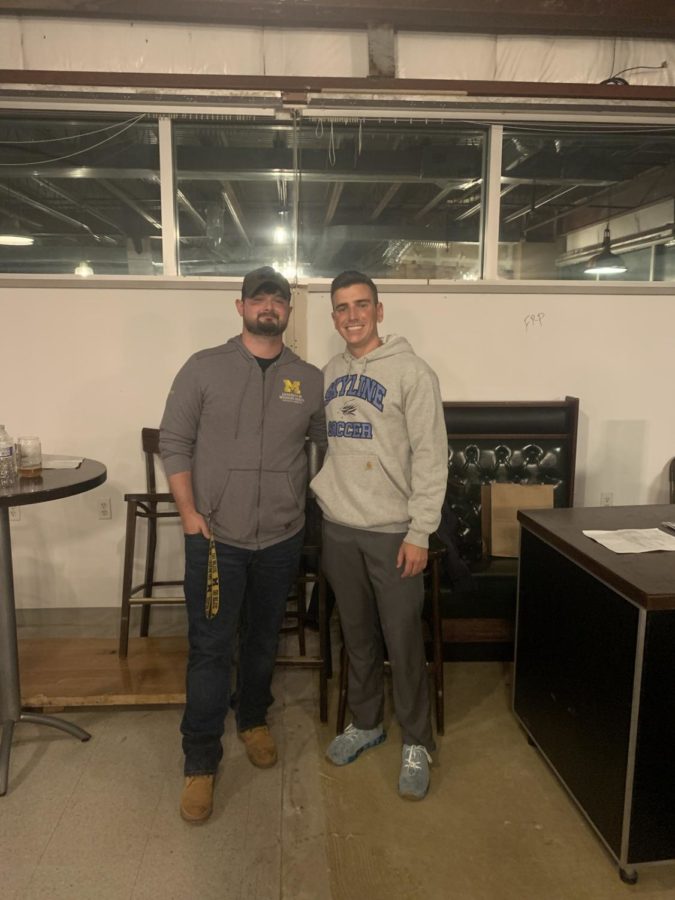
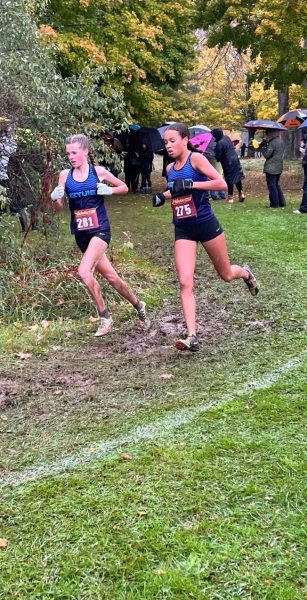
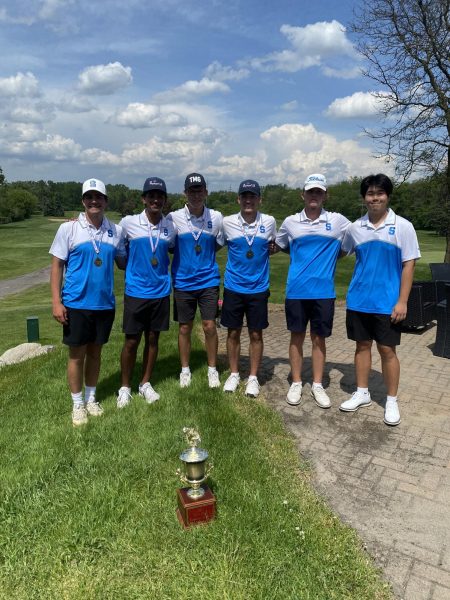
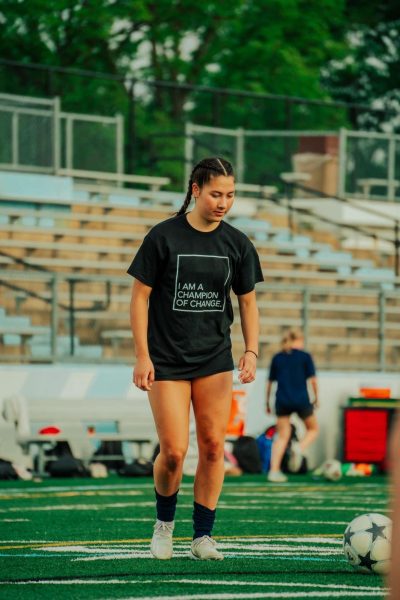

![[Playing] tennis ... helps me, and it also clears up my mind from studying. - Lillian Cui. Credit: Hadley Zann.](https://skylinepost.org/wp-content/uploads/2024/05/hadley-image-600x450.jpeg)
